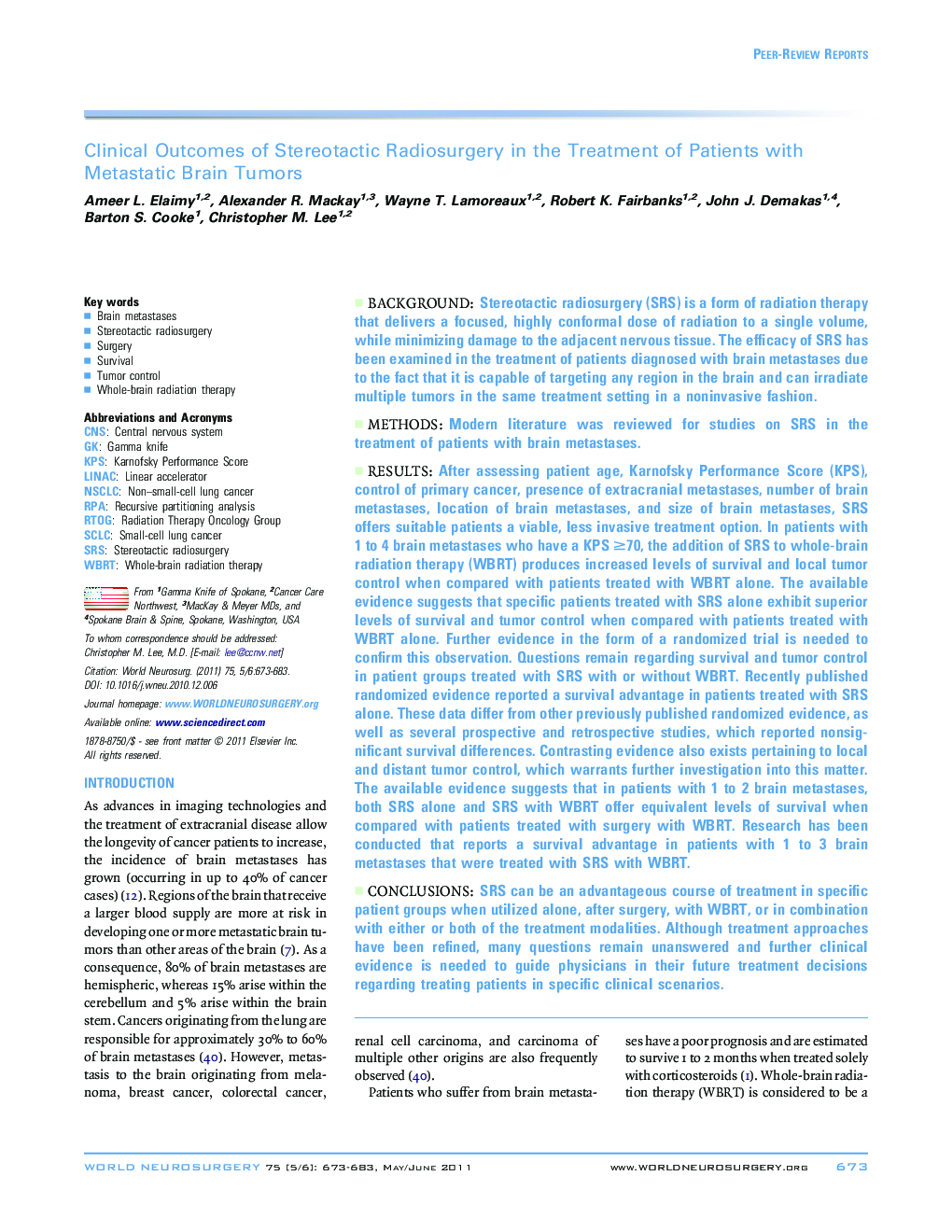| کد مقاله | کد نشریه | سال انتشار | مقاله انگلیسی | نسخه تمام متن |
|---|---|---|---|---|
| 3097280 | 1581486 | 2011 | 11 صفحه PDF | دانلود رایگان |

BackgroundStereotactic radiosurgery (SRS) is a form of radiation therapy that delivers a focused, highly conformal dose of radiation to a single volume, while minimizing damage to the adjacent nervous tissue. The efficacy of SRS has been examined in the treatment of patients diagnosed with brain metastases due to the fact that it is capable of targeting any region in the brain and can irradiate multiple tumors in the same treatment setting in a noninvasive fashion.MethodsModern literature was reviewed for studies on SRS in the treatment of patients with brain metastases.ResultsAfter assessing patient age, Karnofsky Performance Score (KPS), control of primary cancer, presence of extracranial metastases, number of brain metastases, location of brain metastases, and size of brain metastases, SRS offers suitable patients a viable, less invasive treatment option. In patients with 1 to 4 brain metastases who have a KPS ≥70, the addition of SRS to whole-brain radiation therapy (WBRT) produces increased levels of survival and local tumor control when compared with patients treated with WBRT alone. The available evidence suggests that specific patients treated with SRS alone exhibit superior levels of survival and tumor control when compared with patients treated with WBRT alone. Further evidence in the form of a randomized trial is needed to confirm this observation. Questions remain regarding survival and tumor control in patient groups treated with SRS with or without WBRT. Recently published randomized evidence reported a survival advantage in patients treated with SRS alone. These data differ from other previously published randomized evidence, as well as several prospective and retrospective studies, which reported nonsignificant survival differences. Contrasting evidence also exists pertaining to local and distant tumor control, which warrants further investigation into this matter. The available evidence suggests that in patients with 1 to 2 brain metastases, both SRS alone and SRS with WBRT offer equivalent levels of survival when compared with patients treated with surgery with WBRT. Research has been conducted that reports a survival advantage in patients with 1 to 3 brain metastases that were treated with SRS with WBRT.ConclusionsSRS can be an advantageous course of treatment in specific patient groups when utilized alone, after surgery, with WBRT, or in combination with either or both of the treatment modalities. Although treatment approaches have been refined, many questions remain unanswered and further clinical evidence is needed to guide physicians in their future treatment decisions regarding treating patients in specific clinical scenarios.
Journal: World Neurosurgery - Volume 75, Issues 5–6, May–June 2011, Pages 673–683